Affordable and high-quality WiFi extenders for travel.
Using the best WiFi extender for travel is an easy way to get faster Internet during your trip. Such devices are usually small, lightweight, and portable.
Even if you are traveling in a van and need to boost Wi-Fi at campsites, get a WiFi extender and connect to the network. WiFi extenders for travel are weather resistant and easily connect to laptop and phone via USB or Ethernet port.
When choosing the best WiFi extender for travel, pay attention to the bandwidth and data transfer speed. Besides, check such features as water resistance, WiFi hotspot function, and 802.11 compliance.
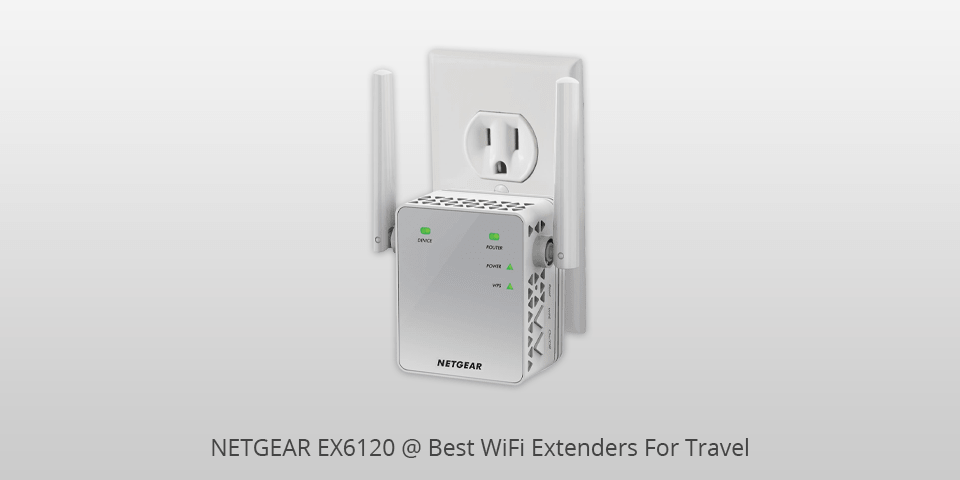
Speed: 1200 Mbps | Coverage: 365m | Wireless Type: 802.11a/b/g/n/ac | Weight: 4.6 ounces
The NETGEAR EX6120 is one of the best WiFi extender for traveling. With its portable and lightweight, it can be used while you are in a coffeehouse, airport, or even on the bus.
This extender will extend the time that you have a stable wireless connection. The NETGEAR EX6120 is able to easily and securely detect whether the wireless connection is live or dead, and improve it.
One of the best features of this NETGEAR extender is the automatic update feature which allows the software to know what is the best network for you and updates your router accordingly. This is extremely helpful for users who are new at the wireless networking field and want to have the most powerful hardware without manually updating the router.
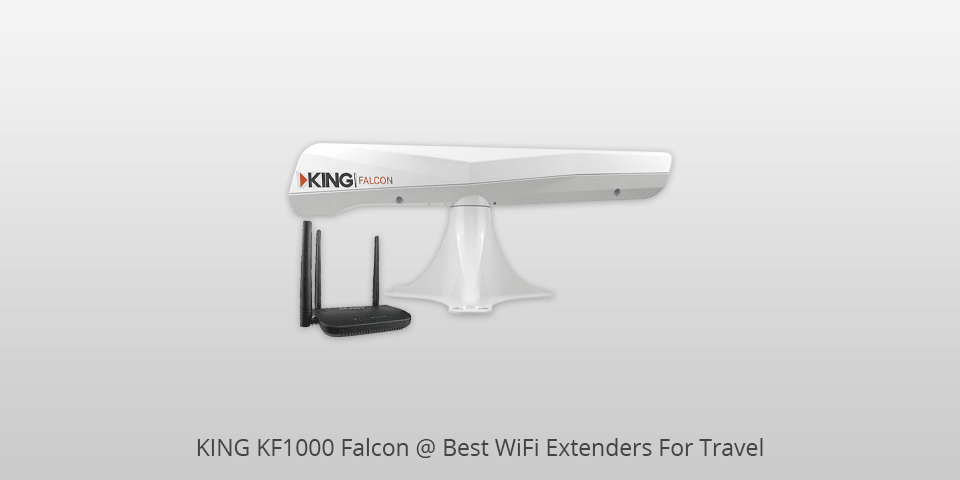
Speed: 1167 Mbps | Coverage: 300m | Wireless Type: 802.11a/b/g/n | Weight: 43.2 ounces
The King KF1000 Falcon is one of the most popular WiFi adapters available for travel. The combination of its size and ease of use takes it to a whole new level.
The King KF1000 Falcon is a great portable WiFi solution that provides outstanding performance and value for money. It has the excellent range of speeds offered, and you can enjoy amazing speeds of up to 1167 Mbps from your device whether you are at home or travelling to a hotspot.
Fast Ethernet connections supported by this model are capable of real time video streaming, which provides the real streaming experience but without the frustration of drop outs or slow downs. In general the connection speed offered is quite good and will not disappoint those looking for the best WiFi extender for travel.
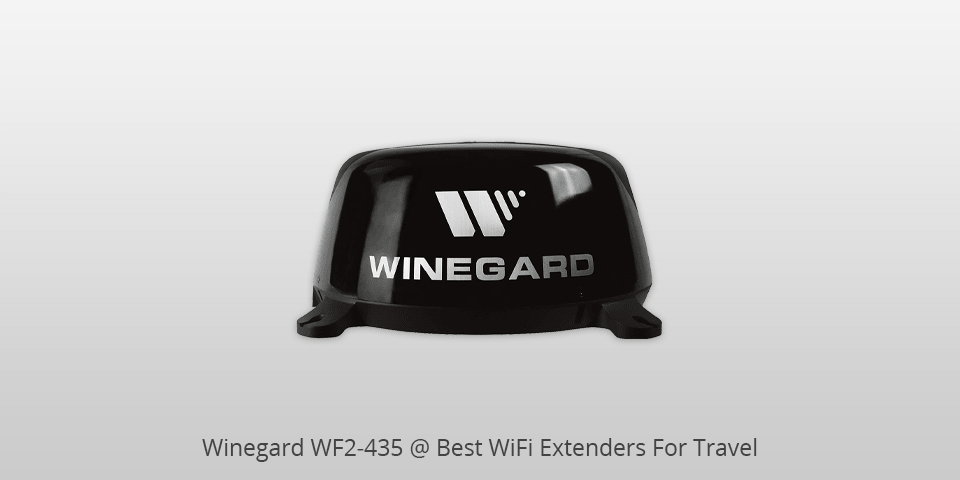
Speed: 450 Mbps | Coverage: 400m | Wireless Type: 802.11 a/b/g/n | Weight: 48 ounces
One of the best portable WiFi extenders for travel is Winegard WF2-435 that is a two-way device that provides you with wireless internet access both on and off the travel. It is easy to set up, easy to use.
It has two standard sized USB ports to connect your laptop or tablet to. Another great thing about this product is that it offers you free lifetime updates so that you never have to worry about getting a new one.
On a plane, at a hotel or any other location, you should be able to enjoy a using WiFi on your Winegard WF2-435. If you don't want to be restricted by your location or if you want to enjoy no wires travel then this model will make your life a lot easier.
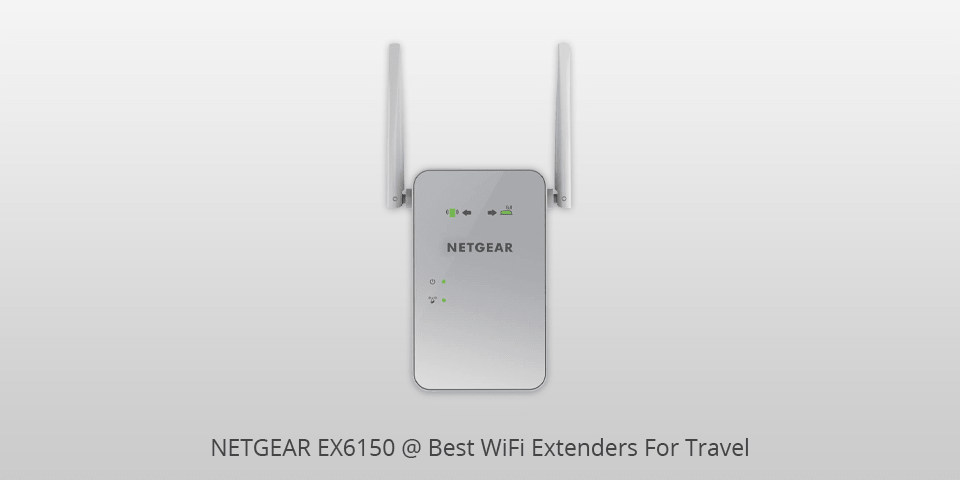
Speed: 1200 Mbps | Coverage: 365m | Wireless Type: 802.11a/b/g/n | Weight: 13.6 ounces
If you are looking for a fantastic WiFi extender for travel, the NETGEAR EX6150 can be right up your alley. It has all of the features you would want in an effective and efficient travel router, and at a much lower price than you might find.
Another great attribute about this extender is that it supports the WAP 2.5 standard. This is far faster and more reliable than the older WAP, and you will never have problems connecting to the hotspot.
With its powerful processors and large memory space, there is no reason that your traveling Internet connection should be slow. If you want to connect to your wireless network anywhere easily then NETGEAR EX6150 is the extender to choose.
| IMAGE | NAME | FEATURES | |
|---|---|---|---|

|
NETGEAR EX6120
Dual band
|
CHECK PRICE → | |

|
KING KF1000 Falcon
Good signal
|
CHECK PRICE → | |

|
Winegard WF2-435
Easy setup
|
CHECK PRICE → |
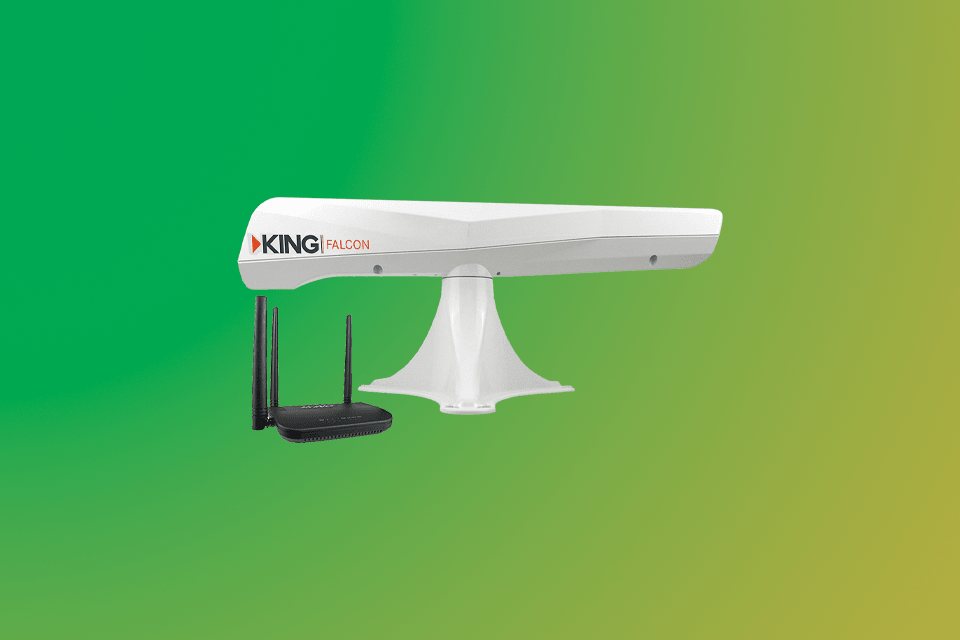
Performance implies the ability to maintain maximum bandwidth. N300 is 802.11b/g/n compliant with SSB speeds up to 300Mbps. AC750 is 802.11ac compliant with simultaneous 300Mbps (2.4GHz) and 433Mbps (5GHz) dual-band support. AC1200 matches an 802.11 standard with simultaneous dual-band access up to 1167Mbps.
AC1750 is an 802.11 compliant with simultaneous dual-band offering up to 1750Mbps (450Mbps at 2.4GHz and 1300Mbps at 5GHz). AC1900 is 802.11 compliant with a simultaneous dual-band up to 1900Mbps. AC2200 is an 802.11 complaint with a simultaneous dual-band up to 2200Mbps.
If you need WiFi in an open area while traveling, then pay attention to water resistance. The best WiFi extender for travel is designed to withstand weather conditions, while still providing a strong WiFi signal.
Check the Ingress Protection (IP) rating on the pack and the temperature range an extender can withstand when traveling. The IP rating determines how resistant a device to weather conditions (mainly dust and water) is. The highest IP68 rating means it is completely dust-proof and can withstand long periods of immersion under the water.
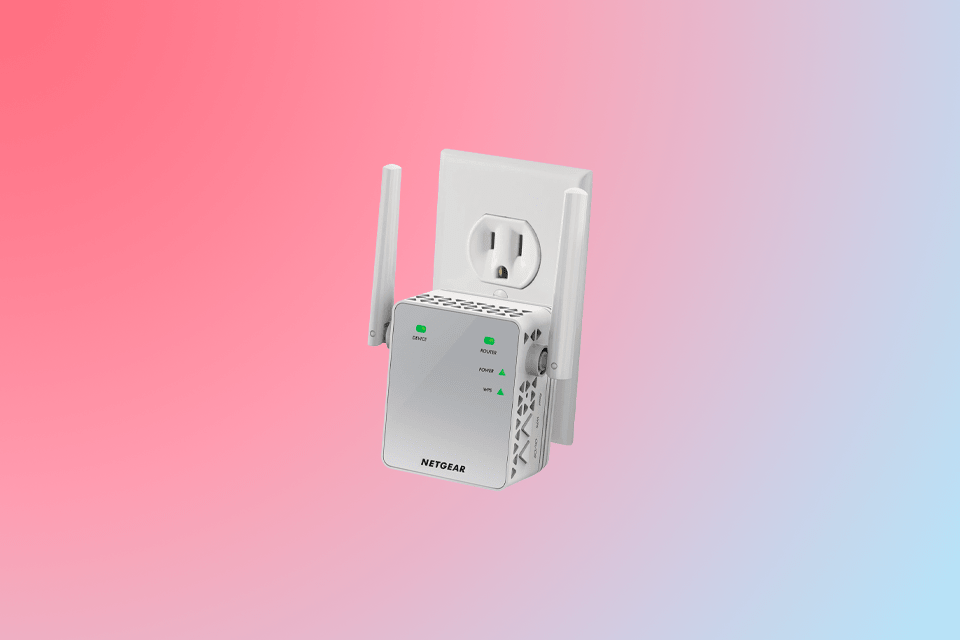
This feature makes it possible to use a WiFi extender as an access point. This means that instead of extending the range of your existing wireless network, you can connect a WiFi extender to the existing wired network and it will become a WiFi hotspot for nearby devices.
In this case, a wired network can become the backbone of the wireless system without the need to install extenders across the building – only in places where WiFi coverage is needed. This is especially convenient for travelers, as they need WiFi only for a small space, such as a hotel room.
A wireless standard your extender uses will affect how efficient it is. The outdated 802.11n standard is slower and is often limited to one band, which creates a bottleneck in WiFi coverage, slowing down browsing and streaming.
If your wireless router uses the current 802.11ac standard, then your extender must also use equal or higher standard. This is a new standard that provides data rates up to 6.77Gbps for devices with 8 antennas. 802.11ax, a new standard (up to 10747Mbps), will also work.